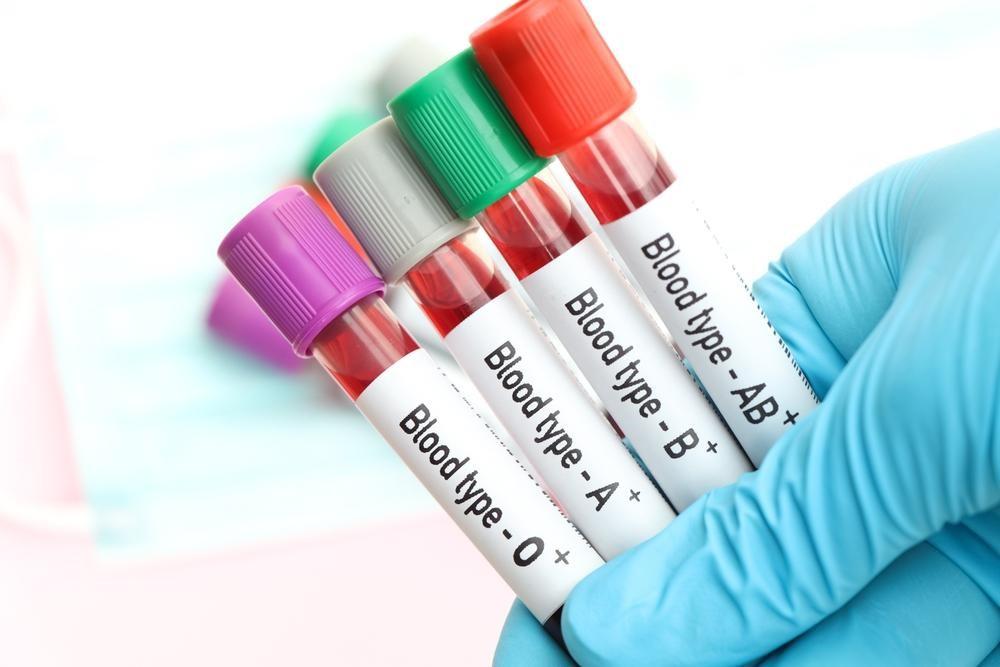Good morning, and welcome to The Epoch Times Health Brief for Sunday, Dec. 1, 2024, or as we call it, the third day of Thanksgiving leftovers.
I’m Bill Thomas, we have several fascinating stories to dive into right now, and here’s what’s going on.
According to a recent scientific review, the microplastics we’re exposed to may be doing more damage to our bodies than we previously thought, there’s a surprising way your blood type could impact your overall health, and we’ll scope out a very simple math formula, which a doctor from Japan has developed for longevity.
Also, experts say certain foods are much better for eye health than any supplements, and we’ll share with you how holding a grudge could physically affect your heart health.
Hidden in Plain Sight: How Everyday Items Fill Our Bodies With Microplastics
We’re absorbing microplastics through our skin, breathing them in, and consuming them through food and drinks. One expert says that we might be ingesting the plastic equivalent of a credit card each week.You should know that these microscopic invaders are also coming from your clothes (think polyester, nylon, spandex), as well as from carpets, curtains, and the sheets on your bed.
Here’s where it gets really disturbing: These microplastics are not just passive hitchhikers. They find their way into our blood vessels, brain, lungs, and even a pregnant woman’s placenta—an organ that literally serves as the lifeline between the mother and the developing fetus.
The problem is that our bodies can’t evict these tiny plastics like they do with viruses or bacteria. Instead, they hang around like deadbeat tenants where they could trigger inflammation, damage cells, and might interfere with our DNA, potentially leading to genetic damage and chronic health issues.
Some researchers have found links between microplastics and the increased risk of developing pulmonary diseases, inflammatory bowel issues, and heart problems.
So you know, there are some steps you can take to reduce your exposure. For example, avoid polyester fabrics and choose natural fibers like cotton and wool, and opt for green vegetables over potentially more contaminated root crops like potatoes, carrots, and turnips.
The Link Between Blood Types and Risks of COVID-19, Cancer, and Other Diseases
New research points out there might be a connection between the kind of blood coursing through your veins and the increased chances for developing conditions like cancer, heart disease, and even cognitive impairment.A Harvard study found that people with type A blood might have up to a 20 percent higher risk of contracting COVID-19 compared to those with type O blood.
Additional research indicates that people with type B blood are at a much higher risk of developing pancreatic cancer.
Also, type A blood has been associated with a higher susceptibility to H. pylori, which is a bacteria linked to stomach cancer.
People with type O blood appear to have a lower risk of several cancers, including colorectal and breast cancer.
Here’s some additional information you need to be armed with. Research finds that those with A, B, and AB blood types have increased chances of developing coronary heart disease. Conditions related to allergies also show a pattern, with type O people reporting more incidents of hay fever and asthma, while those with type A and B experience higher rates of eczema.
Beyond infectious and chronic diseases, blood types might also have ties to cognitive health. One study suggests that people with type AB blood are 82 percent more likely to see a decline in mental function compared to people with other blood types. Oddly, AB blood also seems to correlate with higher levels of a certain blood-clotting protein, raising potential concerns about brain health as we age.
The ‘1, 10, 100, 1,000, 10,000’ Protocol to Protect Your Heart and Mind
Dr. Kyozo Ishikawa, an 88-year-old leading cardiologist in Japan, has come up with a health regimen he calls the “1, 10, 100, 1,000, 10,000” program, which aims to promote longevity and overall health.You should know that Japan has consistently been ranked among the countries where people live the longest.
Here’s how it works: Every day, read one article, laugh out loud 10 times, take 100 deep breaths, write 1,000 words, and walk 10,000 steps. The Japanese Medical Association has even endorsed this routine, recognizing it as a powerful way to stave off cognitive decline and heart issues, both of which are major concerns as people get older.
Ishikawa says that reading daily stimulates all parts of the brain involved in thinking and memory, which can help fend off dementia.
As for laughter, a Japanese survey of more than 20,000 older people indicates that those who laugh frequently have much lower rates of cardiovascular problems.
Ishikawa also recommends taking 100 deep breaths each day, as this helps release oxygen into the bloodstream, and promotes relaxation. He recommends nasal breathing over mouth breathing, because mouth breathing doesn’t filter air as well, potentially allowing harmful substances like bacteria and viruses to get into the lungs.
Next is writing 1,000 words a day, and it can be any type of writing—from journaling to college papers. One recent study of over 10,000 older adults in Australia points out that writing could improve cognitive function and may lower dementia risk by 11 percent.
Finally, walking is crucial. Ishikawa encourages aiming for 10,000 steps daily, which helps with blood circulation and bone health, but even if you can only manage 5,000, that’s still beneficial—every little bit counts.
3 Essential Nutrients for Eye Health: Eating Right Trumps Supplements
To keep our eyes healthy, focusing on three essential nutrients—lutein, anthocyanins, and vitamin C—can be more effective than supplements. According to Naiwen Hu, who is a Chinese medicine expert with over 20 years of experience, these nutrients come from natural food sources and offer protection against problems like age-related macular degeneration and cataracts.Lutein, for example, is crucial for the macula, which is the small, oval-shaped area in the center of the retina, and acts as a shield against harmful blue light, making it especially important for those of us who spend long hours staring at electronic screens.
Next up is anthocyanins, which are found in colorful fruits like all kinds of berries, especially elderberries. These compounds improve blood circulation in our eyes and can help soothe our tired, dry peepers after a day spent in front of a computer, tablet, or a smartphone.
On the vitamin C front, colorful bell peppers take the crown. These veggies pack more vitamin C than your typical citrus fruits, and they are great for overall eye health. Add them into a stir-fry, enjoy them raw, or include them in a healthy vegetable juice smoothie.
Hu also recommends chrysanthemum goji berry tea, which is rich in antioxidants and can help protect your retina.
In addition to a better diet, Hu says that engaging in certain eye exercises can enhance your vision and reduce strain. He encourages simple techniques like rotating your eyes and massaging acupressure points around the eyes, both of which, he says, can work wonders.
Resentment: The Unhealthy Guest in the Human Heart
It turns out, it’s not just making you feel bad emotionally—resentment could be harming your physical health. In one study, cardiac patients talked about their unresolved pain and their arteries actually began to constrict. This could trigger complications like reduced blood flow, which in turn could lead to chest pain, irregular heart rhythm, and even a heart attack.Unfortunately, it gets worse: One study in the Journal of the American College of Cardiology found that people prone to anger and hostility have a 19 percent higher risk of heart disease.
However, some say there may be a way to escape this situation. Forgiveness expert Robert Enright has developed a four-phase process to kick resentment to the curb—you can think of it as an emotional spring cleaning.
First, Enright says, acknowledge the hurt. Next, forgive in order to liberate yourself from lingering pain. Then, shift your perspective by understanding the other person’s backstory and then, find meaning in your suffering, and transform that into a source of personal growth.
Experts say the secret weapon against resentment is gratitude. One of those experts even compares emotional energy to a pie chart—the more space resentment takes up, the less room you have for joy, love, and other positive vibes. By consciously practicing gratitude—finding just one or two things each day to be thankful for—you can slowly push that resentment out.
This isn’t just feel-good advice, it’s backed by science. Researchers have found that people who practice forgiveness actually have lower blood pressure and better heart health.
The bottom line is: Next time you feel that grudge creeping in, remember that holding grudges only holds us back.
And now we’re going to call it a wrap for this edition of the Epoch Times Health Brief.
And don’t forget the Health Brief Motto: We’re portable, affordable, and always on-demand.
And finally, as we do each and every week on this program, we wrap everything up with a very notable quote, and this one comes to us from Virginia Woolf, who said:
“One cannot think well, love well, sleep well, if one has not dined well.”
Woolf was a fabulous writer known for the many books she wrote.
One more thing before we go—the health tip of the day: If you can’t fix it, meditate on it!
For all of us here at the Epoch Times Health Brief, I’m Bill Thomas.
The Epoch Times Health Brief program was written today by Hristina Byrnes.
Thank you for making us your one-stop source for a concise, accurate, and unbiased weekly synopsis of many of the health stories you need to know about.
Enjoy the remainder of your day and we'll see you right back here next time for another edition of the Epoch Times Health Brief.
For now, let’s all continue to watch out for one another, and have an absolutely superb day today. Bye for now.





